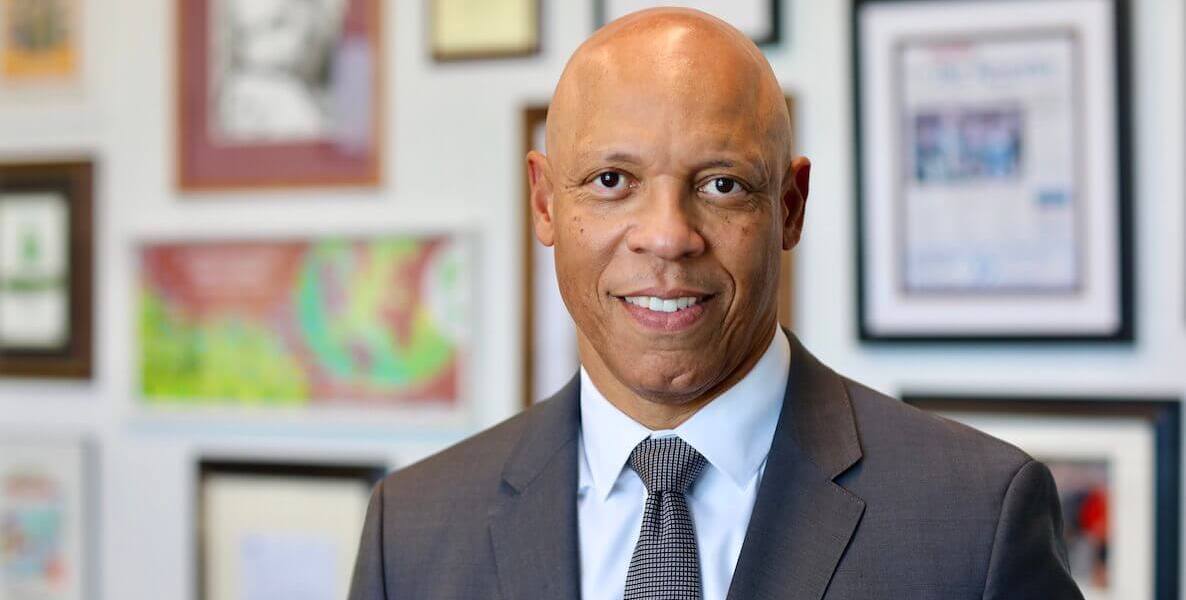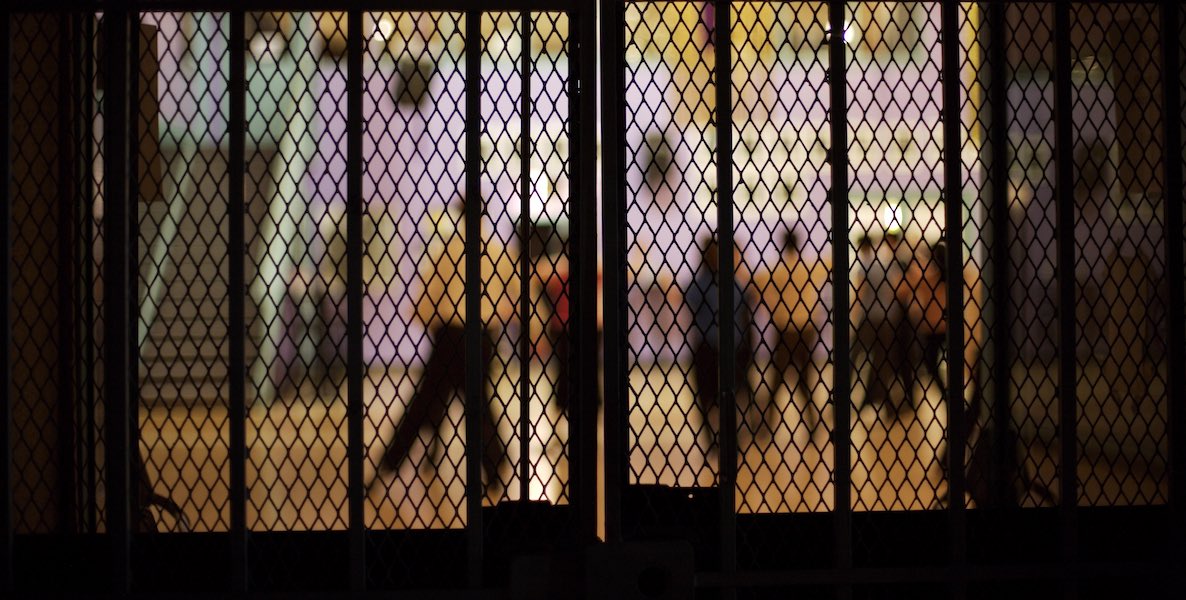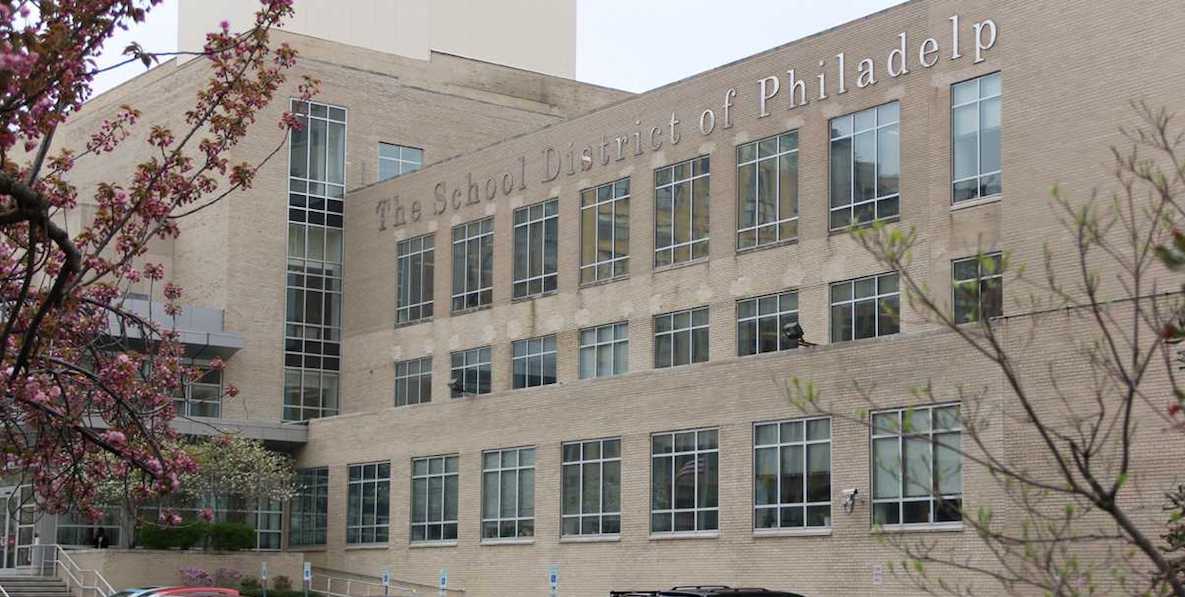![]() Let’s start with what we can all agree on: William Hite is a helluva guy. He’s an able, accomplished educator who has worked his tail off for Philadelphia’s schoolchildren. He’s also as affable as public servants come, and has time and again demonstrated his commitment to his district’s primary client, the kids. He’s skilled at conveying to them that they matter—no small feat.
Let’s start with what we can all agree on: William Hite is a helluva guy. He’s an able, accomplished educator who has worked his tail off for Philadelphia’s schoolchildren. He’s also as affable as public servants come, and has time and again demonstrated his commitment to his district’s primary client, the kids. He’s skilled at conveying to them that they matter—no small feat.
Last year, for example, he joyously sang a rousing rendition of “Wake Up Everybody” with the Hill-Freedman students on their album, and at our Ideas We Should Steal Festival.
Here at The Citizen, we’ve praised Hite’s educational vision, but have been keenly aware that, for at least the first eight years of his nearly nine-year-tenure, city leaders and media have been loathe to criticize the superintendent, likely because of the aforementioned character strengths; you root for a guy who shows up for students.
After years of drama-filled schools leadership—the sharp elbows of Arlene Ackerman (“Queen Arlene” as she was known), the fiscal untidiness of Paul Vallas—William Hite has played the calm adult in the room. When there have been signs of leadership shortcomings, many looked the other way. The thinking seemed to be: He could leave us, after all.
But, lately, the Teflon seems to be wearing off.
![]() In September, citing a “failure of leadership,” the district’s principals’ union called for a vote of “no confidence” in Hite, decrying a top-down management style that has made it harder to manage their own schools. Despite his name being floated by the advocacy group Democrats for Education Reform to head Joe Biden’s education department (Biden ended up selecting Connecticut Education Commissioner Miguel Cardona), last week the district’s school board released its evaluation of William Hite, and it wasn’t pretty.
In September, citing a “failure of leadership,” the district’s principals’ union called for a vote of “no confidence” in Hite, decrying a top-down management style that has made it harder to manage their own schools. Despite his name being floated by the advocacy group Democrats for Education Reform to head Joe Biden’s education department (Biden ended up selecting Connecticut Education Commissioner Miguel Cardona), last week the district’s school board released its evaluation of William Hite, and it wasn’t pretty.
For the first time, he received a “needs improvement” verdict—one step above failing—in two critical areas: student growth and achievement; and systems leadership and operations.
You had to wonder, especially as it pertains to the operations category: What took you so long? Under Hite’s leadership, there have long been plenty of anecdotes that any first-year McKinsey hotshot would recognize as evidence of a crisis in management.
The late Jeremy Nowak was the sole voice of critique on this point five years ago: “While there is a lot of attention being paid to the new systems William Hite wants to create, the old support functions in data management, personnel, information technology, and finance need much deeper work,” wrote the Citizen’s founding chairman. “It is one thing to have a strategy but it is another thing to align the operating capacity and talent in an organization to carry that strategy out.”
Can he regain the confidence of his varied constituencies, or will it soon be time to thank Hite—sincerely—for his commitment and his efforts, and move on? And if it comes to that, will Philly have the fortitude to think outside the box?
Nowak used to say “implementation is policy”; his point was that running a $3.5 billion bureaucracy like the School District of Philadelphia was essentially a management challenge, and the smartest policy is only as effective as its implementation. Hite’s tenure has been marked by countless examples that make you wonder who’s in charge of implementing necessary change, and who’s being held accountable, if anybody.
The school board review of Hite’s performance zeroed in on the shit show that was the sordid saga of Benjamin Franklin High School and Science Leadership Academy. Asbestos had been found in the building housing both schools, and Hite’s team had ample time to prepare for the merging of the two schools into one space.
Nevertheless, owing to construction delay upon construction delay, the building opened with workers still working, placing students, teachers and staff in harm’s way. The $50 million project came in at five times its original budget. It was a colossal failure of management.
But an isolated incident it was not. Let’s recap:
- Remember the embarrassing $34 million the School District pissed away a few years ago on an outside firm that was contracted to fill 75 percent of vacant classrooms with substitute teachers? They filled—at best—one-third of the openings they were hired to fill, and then had the chutzpah to try and renegotiate for a better deal, before walking away. That’s right: This wasn’t William Hite firing a failed vendor. It was the failed vendor lining its pockets and then slinking off, saying, in effect, to taxpayers: See ya, wouldn’t want to be ya.
- Or how about when thousands of textbooks were discovered gathering dust in the bowels of district headquarters, and another stockpile was found overflowing the hallways and classrooms of a shuttered school?
- And what of the rollout of virtual learning last spring and into this school year? One source with ties to the district bemoans the lack of internal project management chops within the administration. Remember when the plan was floated for parents to drive kids to school parking lots to access wifi? Yeah, that was a smart solve. Had it not been for Comcast ponying up the resources and Accenture lending its pro bono project management expertise to getting students online via the PHLConnectED program, a vast number of kids still wouldn’t be learning at home today.
An adroit systems manager last spring wouldn’t have adopted a policy of, in effect, hoping (Trump-like?) for the virus to fizzle out over the summer months, and would have, instead, shifted resources and come up with a robust virtual schooling plan. Instead, beginning in September, parents got more fits and starts and mixed signals from Hite and his team.
It’s tempting to want to cut William Hite a break on all this. After all, this has been a once-in-a-lifetime pandemic, and no one has handled it perfectly.
That’s true, but then came the coup de grace in August, a story to confirm that, when it comes to managing the district and your $3.5 billion, Hite and a whole group of folks have been asleep at the switch.
Turns out that the high-level employee who was heavily involved in the district’s pivot to remote learning last spring and summer was actually moonlighting.
Tracy Ocasio, who was earning $140,000 as the district’s deputy director for curriculum and instruction, was simultaneously employed by the Columbus, Ohio, school system, where she was chief academic officer to the tune of $152,000 a year.
You read that right. Can’t make this stuff up. The employee that Hite publicly praised for her expertise in digital learning was simultaneously holding down a full-time gig in Ohio. Just where does the buck stop at the School District of Philadelphia (SDP)?
Now you tell me if you have confidence that the SDP is a well-run, efficiently managed organization. Public officials like to talk about how much children matter. But maybe one way to show how much you value children is to actually turn the district into something that doesn’t steal from them.
This isn’t to argue that a superintendent should be a technocratic COO; vision is an integral part of the job. But Hite’s litany of managerial miscues speaks to the pervasive failings of something we’ll call the Superintendent Industrial Complex.
The employee that Hite publicly praised for her expertise in digital learning was simultaneously holding down a full-time gig in Ohio. Just where does the buck stop at the Philadelphia School District?
Across the nation, school superintendents are like coaches in the NBA—part of a fraternity that gets recycled from city to city. Most are, like Hite, accomplished and committed educators who have risen through the ranks.
![]() But is the ability to break down pedagogy the skill that is first and foremost needed to turn around tankers like overly-centralized school districts? Or is the skill set most in need really the ability to cajole, massage, and flat-out shock a bureaucracy so it transforms itself into a mission-driven enterprise? That not only requires significant egg-breaking, but also a level of management expertise that we haven’t seen from our superintendent.
But is the ability to break down pedagogy the skill that is first and foremost needed to turn around tankers like overly-centralized school districts? Or is the skill set most in need really the ability to cajole, massage, and flat-out shock a bureaucracy so it transforms itself into a mission-driven enterprise? That not only requires significant egg-breaking, but also a level of management expertise that we haven’t seen from our superintendent.
Elsewhere, there are examples of another model, one that features the promise of outsider change agents. In New York, after taking back control of the schools, then-Mayor Michael Bloomberg named the combative Joel Klein Chancellor of New York City Schools.
Klein had been a corporate executive and had led the U.S. Department of Justice’s antitrust division. He was controversial, no doubt, but made real inroads in turning around a system that had been on the brink.
Under Klein, graduation rates grew for eight straight years, and he adopted an accountability system for schools not unlike the one that exists for students. He established a freer and fairer market for hiring teachers, granted greater autonomy to principals, and expanded charter schools and held them accountable.
“Klein demonstrated a non-educator can make a lot of meaningful change in a big city school district,” Michael J. Petrilli, the vice president of the Thomas B. Fordham Institute in Washington told EducationWeek when Klein stepped down a decade ago.
More recently, and closer to home, there was Paymon Rouhanifard, the wunderkind Camden superintendent for five years beginning in 2013. Rouhaniford, a former Goldman Sachs analyst, only had two years of classroom experience.
His turnaround of the Camden system—graduation rate up 17 percent, dropout rate down by half, suspensions down by 50 percent—is a testament to the power of pragmatic leadership. He introduced to public schools positions like operation manager, dean of culture, and family coordinator. He reduced the number of administrators at district headquarters from 380 to 183.
![]() Finally, keep your eye on Austin Buetner. Named superintendent of The Los Angeles Unified School District in mid-2018, Buetner had virtually no prior educational experience. He’d been an investment banker, a philanthropist, and the publisher of the Los Angeles Times.
Finally, keep your eye on Austin Buetner. Named superintendent of The Los Angeles Unified School District in mid-2018, Buetner had virtually no prior educational experience. He’d been an investment banker, a philanthropist, and the publisher of the Los Angeles Times.
“The job isn’t top teacher,” one LAUSD board member told Governing magazine when Buetner was hired. “It’s really about running an $8 billion organization with 55,000 employees.”
Buetner’s tenure has been uneven; he’s had to weather a teachers strike, and then Covid hit. But he’s saved $100 million on healthcare spending, and reports that only 3 percent of the district’s budget is spent on central administration.
“Beutner was neither the obvious nor the safe choice to head the district, but that may be what best prepares him for success,” wrote Jon Regardie in LA Downtown News. “In his decade in the L.A. spotlight he has established a track record as a forward-thinking leader who is unafraid to kick against the status quo if it prohibits progress.”
All three of the aforementioned leaders—Klein, Rouhanifard, and Beutner—knew that, if you can’t master the blocking and tackling of local governance, you’ll never get the big transformational stuff done. Because turning bold plans into real action requires that a school board, parents, students and taxpayers all believe that you can do it. And it’s infinitely harder to earn their faith when they see that a full-time member of your team is doing essentially the same job at the same time in another state, and when botched decision-making is exposing students and teachers to asbestos, and when cockamamie ideas about providing wifi to families in school parking lots are floated, and then discarded.
This is the challenge for William Hite moving forward. Can he regain the confidence of his varied constituencies, or will it soon be time to thank Hite—sincerely—for his commitment and his efforts, and move on? And if it comes to that, will Philly have the fortitude to think outside the box? Or will we be in for a return to the old superintendent carousel?






